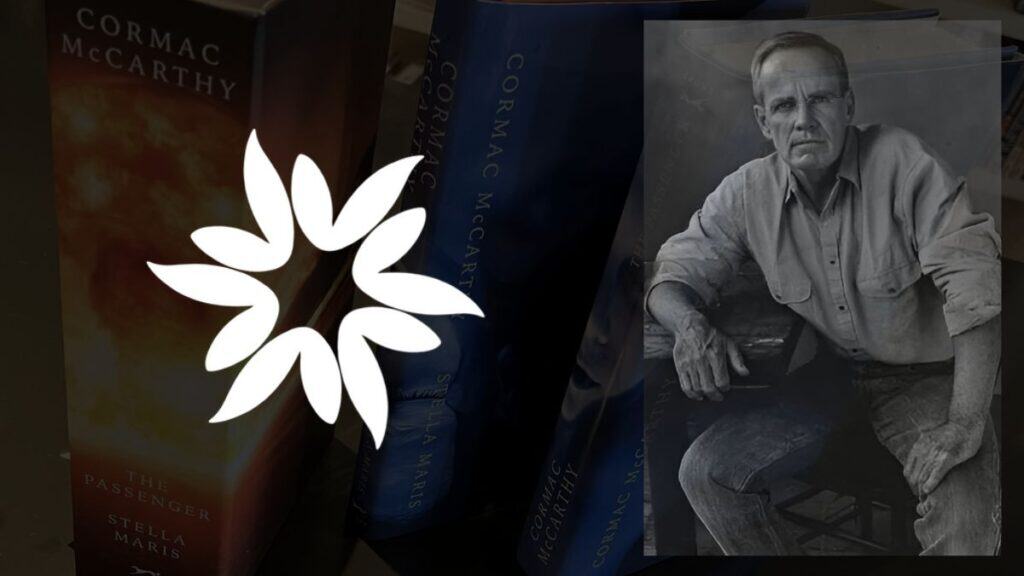Fantasy fiction is a genre that brings to life magical and supernatural elements in imaginative, often mythical worlds.
This guide explores the fantasy’s origins, key characteristics, subgenres, and top must-read books.
Key Takeaways
- Fantasy fiction incorporates magical and supernatural elements, often set in imaginary worlds inspired by mythology and folklore.
- The genre has evolved from ancient myths and legends to modern classics, captivating readers with epic adventures and complex characters.
- Popular subgenres include high fantasy, urban fantasy, dark fantasy, and more, each offering unique stories and imaginative worlds.
What Is Fantasy Fiction?
Fantasy fiction is a genre of speculative fiction that incorporates magical and supernatural elements, often set in imaginary worlds inspired by mythology and folklore.
This genre is characterized by its imaginative nature, allowing authors to create worlds and scenarios that are impossible in reality.
Fantasy fiction can encompass a wide range of stories, from epic adventures to tales of personal growth and discovery.
Origins and Evolution of Fantasy Fiction
Ancient Beginnings
Fantasy fiction has its roots deep in ancient myths, legends, and folklore.
These early stories, often shared orally, were filled with gods, magical creatures, and epic heroes.
They served to explain natural phenomena, convey moral lessons, and entertain.
Myths from various cultures, like the Greek myths of Zeus and Hercules, the Norse sagas of Odin and Thor, and the epic tales of India’s Mahabharata and Ramayana, all contributed to the foundation of what we now consider fantasy fiction.
The Birth of Modern Fantasy
The 19th century saw the emergence of modern fantasy literature. George MacDonald’s 1858 novel Phantastes and William Morris’s 1896 work The Well at the World’s End are often cited as pioneering examples of modern fantasy.
These authors, along with others like Lewis Carroll, whose Alice’s Adventures in Wonderland (1865) remains a beloved classic, laid the groundwork for the genre.
The Golden Age
The early 20th century marked a significant period for fantasy fiction, often called its Golden Age. This era saw the publication of many influential works and the establishment of fantasy as a distinct genre.
J.R.R. Tolkien, often hailed as the Father of Modern Fantasy, published The Hobbit in 1937 and The Lord of the Rings trilogy in the 1950s.
These works gained immense popularity and set the standard for high fantasy with their richly developed worlds and epic narratives.
Fantasy in Media
Fantasy’s appeal extends beyond books. Early adaptations of fantasy stories appeared in radio dramas and films, with Disney’s animated Snow White and the Seven Dwarfs (1937) being a notable example.
The genre continued to evolve with the advent of television and, later, the internet, which allowed for more dynamic and visually stunning representations of fantastical worlds.
Technological Advancements
The late 20th and early 21st centuries saw technological advancements that significantly impacted the fantasy genre.
The development of CGI (computer-generated imagery) allowed for the creation of visually spectacular fantasy films and television series.
Peter Jackson’s The Lord of the Rings film trilogy (2001-2003) and HBO’s Game of Thrones series (2011-2019) are prime examples of how technology has brought fantasy worlds to life, captivating new generations of fans.
Contemporary Fantasy
Today, fantasy fiction continues to thrive in various forms. Books, movies, TV shows, video games, and even stage plays explore countless subgenres and styles.
Authors like J.K. Rowling, with her Harry Potter series, and George R.R. Martin, with A Song of Ice and Fire, have brought fantasy to a broader audience, merging traditional elements with modern themes and complex characters.
Key Characteristics of Fantasy Fiction
- Magic and Supernatural Elements: Magic is a central theme in fantasy fiction. This can include magical creatures, spells, enchanted objects, and other supernatural phenomena.
- Imaginary Worlds: These stories often take place in fantastical settings, such as otherworldly realms, ancient kingdoms, or futuristic dystopias.
- Heroic Quests: Many fantasy tales involve a hero or group of heroes embarking on a quest to achieve a significant goal, such as saving the world or defeating a dark lord.
- Mythical Creatures: Dragons, elves, fairies, and other mythical beings are common in fantasy fiction.
- Good vs. Evil: A recurring theme in fantasy is the struggle between good and evil, often depicted through epic battles and moral dilemmas.
Subgenres of Fantasy Fiction
Fantasy fiction is diverse, encompassing various subgenres that cater to different tastes and preferences. Some of the most popular subgenres include:
- High Fantasy: Also known as epic fantasy, high fantasy is set in entirely fictional worlds with complex histories and cultures. J.R.R. Tolkien’s The Lord of the Rings is a quintessential example.
- Urban Fantasy: This subgenre places magical elements in contemporary urban settings. Examples include Neil Gaiman’s Neverwhere and Jim Butcher’s The Dresden Files.
- Dark Fantasy: Combining elements of fantasy and horror, dark fantasy explores the darker side of magic and supernatural events. George R.R. Martin’s A Song of Ice and Fire series is a notable example.
- Historical Fantasy: Blending historical events with fantastical elements, this subgenre reimagines history with magic and mythical creatures. Jonathan Strange & Mr Norrell by Susanna Clarke is a prominent example.
- Sword and Sorcery: Focused on action-packed adventures and heroic characters, this subgenre is exemplified by Robert E. Howard’s Conan the Barbarian stories.
Top 10 Fantasy Fiction Books and Series
Fantasy fiction has given us some of the most imaginative and captivating stories ever told.
Here are ten of the best fantasy books and series that have stood the test of time and continue to enchant readers of all ages.
1. The Lord of the Rings by J.R.R. Tolkien
Tolkien’s epic trilogy, which includes The Fellowship of the Ring, The Two Towers, and The Return of the King, is a cornerstone of fantasy literature.
Set in the richly detailed world of Middle-earth, the story follows the journey of Frodo Baggins as he seeks to destroy the One Ring to thwart the dark lord Sauron.
2. A Song of Ice and Fire Series by George R.R. Martin
Beginning with A Game of Thrones, this series combines medieval political intrigue with supernatural elements like dragons and ice zombies.
Martin’s intricate plotting and complex characters have made this series a modern classic, inspiring the hugely popular TV adaptation.
3. Harry Potter Series by J.K. Rowling
Rowling’s seven-book series follows the young wizard Harry Potter as he attends Hogwarts School of Witchcraft and Wizardry and battles the dark wizard Voldemort.
The books have become a cultural phenomenon, beloved by readers of all ages for their magical world and themes of friendship and bravery.
4. The Hobbit by J.R.R. Tolkien
A prelude to The Lord of the Rings, this book tells the story of Bilbo Baggins, a hobbit who embarks on an unexpected adventure to help a group of dwarves reclaim their homeland from the dragon Smaug. It’s a charming and timeless tale of courage and discovery.
5. The Chronicles of Narnia by C.S. Lewis
This series of seven books, starting with The Lion, the Witch and the Wardrobe, takes readers to the magical land of Narnia, where children become heroes in epic battles between good and evil. The series is known for its imaginative settings and allegorical themes.
6. The Wheel of Time series by Robert Jordan
This fourteen-book series is a monumental work of epic fantasy, following the adventures of Rand al’Thor and his friends as they fight against the Dark One.
Jordan’s detailed world-building and complex plotlines have made this series a staple of the genre.
7. His Dark Materials by Philip Pullman
Starting with The Golden Compass, this trilogy explores parallel universes and philosophical themes through the adventures of Lyra Belacqua and Will Parry.
Pullman’s richly crafted world and compelling characters have garnered critical acclaim and a dedicated fanbase.
8. Mistborn Series by Brandon Sanderson
Sanderson’s series, beginning with The Final Empire, is set in a world where magic is derived from metals.
The story follows a group of rebels with unique abilities as they attempt to overthrow a tyrannical ruler. Sanderson’s inventive magic system and dynamic characters have made the series a modern favorite.
9. The Kingkiller Chronicle by Patrick Rothfuss
This series, starting with The Name of the Wind, tells the story of Kvothe, a gifted young man with a troubled past, as he seeks to unravel the mysteries of his life and the world around him.
Rothfuss’s lyrical writing and deep world-building have helped his series to captivate readers worldwide.
10. The Earthsea Series by Ursula K. Le Guin
Beginning with A Wizard of Earthsea, this series explores themes of power, balance, and self-discovery through the journey of Ged, a young wizard. Le Guin’s thoughtful storytelling and profound themes have made this series a classic of the genre.
Embrace the Magic of Fantasy Fiction
Fantasy fiction opens doors to magical worlds, unforgettable characters, and epic adventures.
Whether you’re new to the genre or a longtime fan, these books offer something for everyone. They provide a perfect escape from reality, letting your imagination soar.
Start your journey with any of the featured timeless classics and discover the wonders that await you in the realms of fantasy.
Happy reading!
















